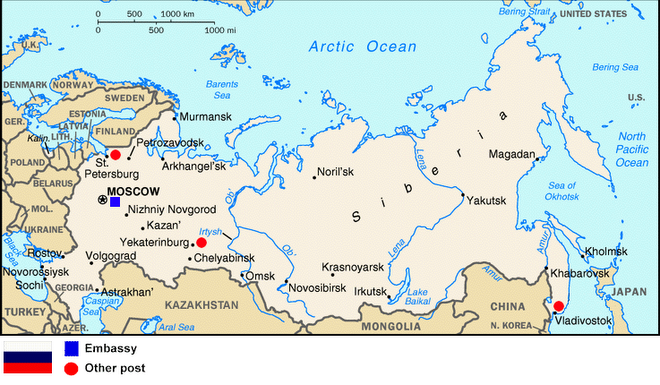As is typical of these sorts of multi-day conferences, there was a 50% reduction in the delegate audience on day two, from day 1. That is not necessarily a bad thing: for these sort of things day one is boosted by government officials’ hangers-on and an ephemera of media. So the day II audience is more focused and less …um… star-fucky.
Yesterday (Tuesday, Day II) was banker day and the highlight session for yours-truly was the session on Ukraine and the Capital Markets; able chaired by Brian Best, of Dragon Capital, who gamely opened by saying: “Actually, the market sell-off around the world pretty much bypassed Ukraine; one of the few occasions the market’s lack of liquidity worked in our favour”.
The ebullient Sergiy Kulpinsky, equity strategist from Alfa Capital Ukraine, pointed out that only 6% of the shares of quoted Ukrainian companies are actually ‘free-float’; which is staggeringly small and reminds us that Ukrainian share prices (says Exile) are probably at the top of the market, even now.
Ukraine's PFTS index rose 135% in 2007; so don’t go hunting bargains in the Kyiv secondary market but, as it happens, there are some new issues coming through the next 2-3 years which, if not priced too greedily, are going to be interesting in the long term. That, of course, is the attraction of a market like Ukraine: long-term strong growth. But it is currently expensive to buy into.
Kulpinskiy – who is a very good speaker, BTW, a rarity at these events – went on with a nice analogy about ‘the good, the bad and the ugly’ and the Ukrainian Stock Market, the PFTS:
“the good is the market and the expertise of the brokers there" [OK…um…nice sell mate] "the bad are the fundamentals of the market…inflation, soaring household debt and the fact private consumption is overheating.” [Spot on says I. Ukraine should have a wonderful next five years but it has got to sort out its inflation problem or else the pendulum could easily switch the other way]; and the ugly? “The politics: and the political risk discount international investors want on Ukrainian new issues”.
Nick Koemtzopoulos from Credit Suisse – whose speech was a curate’s egg - but the second half was way too low-brow for the expert audience he was addressing – enlightened us that the ‘emerging markets’ (the BRIC nations and the satellite economies that orbit around them) accounted for 33% of new equity issues, globally, last year. That’s more than Western Europe. But it is a tough market out there:
New equity issues globally:
2005 on 2004 up 190%
2006 on 2005 up 216% - a handful of mega-issues, like the giant Rosneft IPO out of Russia and China’s ICBC account for a big chunk
2007 on 2006 up 66%
Q12008 on Q12007 down 97% - in terms of market sentiment, a huge amount rides on how the Visa IPO goes later this month.
However, in Ukraine, 40% - forty percent! – of stock market new issues in 2007 were in real estate and construction. That’s a huge skewing of the market to one sector. Real estate and construction, of course, are highly leveraged plays on expected future economic confidence. Without continued confidence, those stocks can sink like a stone.
That said, what has stalled other global markets is the fall-out from the global credit crunch last year. Well for Ukraine, much more than Russia, the global credit crisis has so far been something that happened ‘somewhere else’. The Ukrainian market hasn’t been so affected by a lack of confidence in the banking sector.
Here the historically, relatively undeveloped banking capital market has had the unexpected benefit of protecting local market sentiment. This is because, due to country risk, Ukrainian banks have pretty much only been able to tap the bond markets for 1-year notes (rather than the 10-year, convertible bonds etc., issued by 1st world banks).
Now, on the one hand this has meant that many Ukrainian banks have to refinance, in 2008’s tighter markets, money they only raised in 2007. On the other hand, such tight borrowing conditions placed a limit on Ukrainian banks ability to leverage up - according to Dmitri Sredin from Troika Dialog’s primary debt team, 2008 refinancing risk for Ukrainian banks is low, he says, in 2008. In fact, only 2.8% of bank capital needs refinancing this year.
Exile says: that’s way lower than Russia – and even more so compared to poor old Kazakhstan whose banking sector is a mess – and this is important. 2008 should see a smooth banking sector in Ukraine and this, of all things, should help to underpin market confidence about quality new issues in Ukraine.
Statistic of the day:
In 2003 the corporate debt market (corporate bonds issued and new syndicated loans granted), globally, was worth $2.4 trillion in new deals done.
By 2007, this had ballooned to over $7.5 trillion (factoid courtesy Nicolas Lipovsky at Calyon bank).
Having more than trebled in five years, that’s not ‘strong global growth’, that is a huge debt bubble. Last autumn’s credit crunch therefore is something of a correction we really all ought to have seen coming and expected. The fact we all didn’t tell you how crap capitalists are when greed gets in the way of judgment. I calculate that as a CAGR of almost 26%; way outstripping nominal, annual global GDP growth.
PS: $6.7 billion of that debt growth, in 2007, was for Ukraine – $3 bn of it for banks – compared to $11.7 bn in Kazakhstan; sadly, for Kazakhstan, also mostly for banks.
Real Economy Stat of the day #1:
Ukraine is already the 7th largest new car market in the whole of Europe.
The top three are Germany, Italy and, at number three, Russia. This is a good reminder that you shouldn’t view the RUK markets (new buzz phrase: Russia, Ukraine, Kazakhstan) as emerging markets: they have pretty much already emerged. It is now all about market share.
Real Economy stat of the day #2:
Ukrainian real GDP growth in 2007 was about 7.5% - about the same as Russia’s – but inflation outstripped even Russia’s worsening record: 16.6% inflation in 2007 and is expected to be 17% +.
Exile - This, BTW, reminds us of yesterday’s macro-economic advice, from Anders Aslund, at the conference. Import inflation has to be sterilized ASAP through a re-valuation of the Ukrainian Hryvna against the US Dollar.
Subscribe to:
Post Comments (Atom)





No comments:
Post a Comment